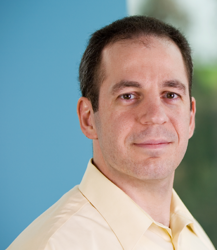What does Yahoo’s latest reorganization all mean, especially in light of the situation with Microsoft still being up in the air? Like yesterday’s assertive letter to shareholders defending its Google deal, Yahoo is trying to show that it is getting on with its life, thank you very much.
The announcement is clearly aimed at squashing any lingering hopes for a new Microsoft deal to emerge. I spoke today with Yahoo’s chief technology officer Ari Balogh, who says:
The signal you should take from this is we believe most of that is over. We need to run this for the long term. While the board was considering the Microsoft deal, it would have been foolish to do a major reorg.
There is some wiggle room there. (He said “most of that is over” not “all”). But Yahoo has to act independently and shore up its resolve going into its shareholder meeting on August 1.
The main goal of the reorganization is to separate product development (all the Yahoo properties and services that consumers use) from advertising sales. It makes sense as far as it goes, but is not a terribly new idea. Most media companies separate the development of their content from the selling of their content. So Yahoo is acknowledging what everybody knows—that it is in fact a media company.
The products and content that it makes, though, are technology products. And that’s where Balogh’s group comes in. (As CTO, he oversees all the hardcore engineers in search and elsewhere that support, but are separate from, the new product group under Ash Patel). Balogh is standardizing technologies and development platforms across Yahoo in a major push to make Yahoo more open. Separating out product groups from the business side, he says, will “accelerate our open and social strategy” and allow good ideas to bubble up faster, even if they won’t make money in the short term.
Yahoo is also standardizing Yahoo’s internal cloud computing platform across its different properties into one consistent set of technologies. (Apparently, it is still a hodgepodge across different parts of Yahoo). Will Yahoo open up its cloud computing infrastructure to outside companies and compete with Amazon’s Web Services or Google’s App Engine? Balogh hints as much, and more:
That decision has not been made, but Yahoo will use it. One thing we will do is open it up in a different way. When we do, you will be surprised by how much we make available to the world.
It is clear that he wants to open-source parts of Yahoo’s infrastructure. He is also making all of Yahoo’s API’s and apps work on a consistent development framework. All of this is supposed to lead to deeper engagement with developers and ultimately killer products.
And maybe it will. But Yahoo still has some bigger questions to resolve about its future. It may want to signal that it is ready to move on past its dalliance with Microsoft, but some of its biggest shareholders are not quite there yet.
